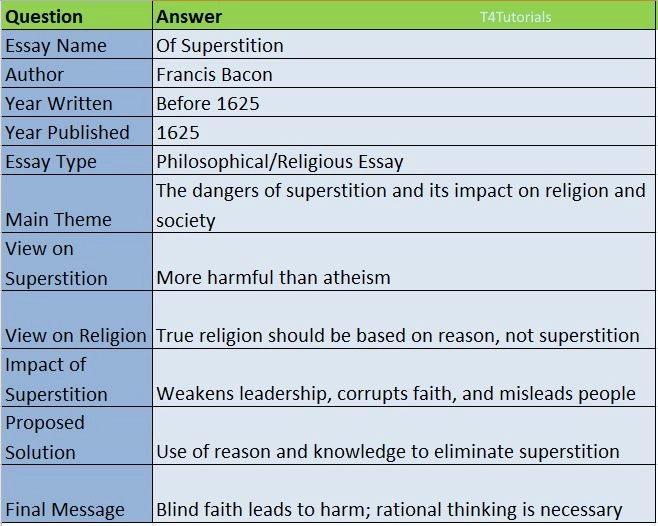Summary:
In Of Superstition, Francis Bacon argues that superstition is more dangerous than atheism because it corrupts true religion and misleads people. He describes superstition as a disease that infects faith, leading to irrational beliefs and harmful practices. Bacon criticizes religious leaders who promote superstitions for personal gain, warning that it weakens governance and society. Unlike atheism, which he sees as a rejection of religion, superstition distorts religious truth and prevents people from thinking rationally. He emphasizes the need for reason and knowledge to eliminate superstitions and create a more rational and just society.
10
Score: 0
Attempted: 0/10
Subscribe
| Question | Answer |
| Essay Name | Of Superstition |
| Author | Francis Bacon |
| Year Written | Before 1625 |
| Year Published | 1625 |
| Essay Type | Philosophical/Religious Essay |
| Main Theme | The dangers of superstition and its impact on religion and society |
| View on Superstition | More harmful than atheism |
| View on Religion | True religion should be based on reason, not superstition |
| Impact of Superstition | Weakens leadership, corrupts faith, and misleads people |
| Proposed Solution | Use of reason and knowledge to eliminate superstition |
| Final Message | Blind faith leads to harm; rational thinking is necessary |